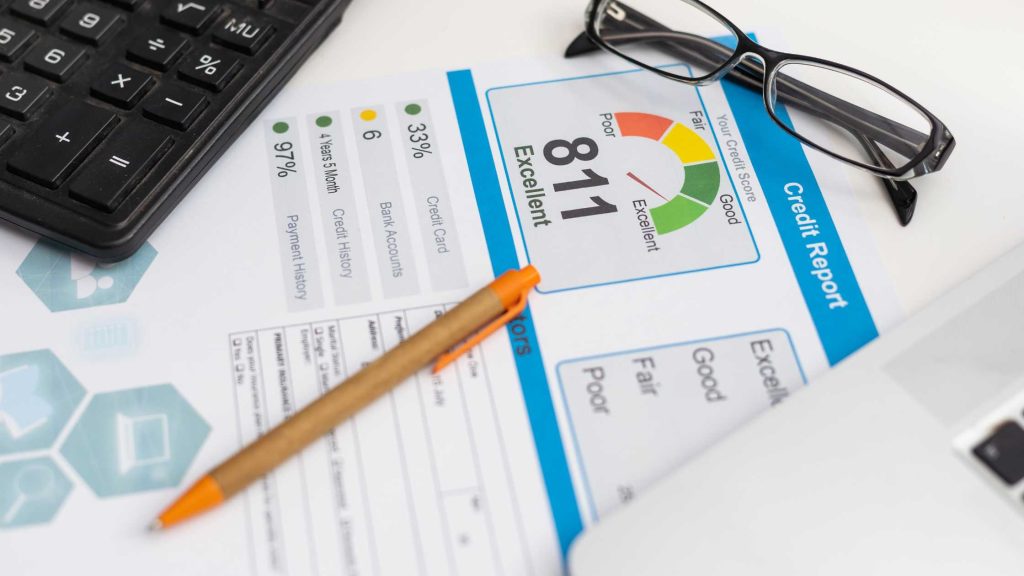Tips to Maintain Credit Score After Taking a Loan – Comprehensive Guide 2025
Tips to Maintain Credit Score : Maintaining a healthy credit score is one of the most crucial aspects of financial management, especially after availing a personal loan, home loan, car loan, or any other form of credit. A strong credit score does not just reflect your creditworthiness but also ensures that you continue to enjoy financial privileges such as faster loan approvals, lower interest rates, higher credit card limits, and better negotiating power with lenders. However, once you take a loan, your credit profile undergoes constant evaluation, and your repayment behaviour plays a pivotal role in shaping your credit score.
Table of Contents
This comprehensive guide will walk you through the most effective tips to maintain and even improve your credit score after taking a loan, ensuring your financial health remains robust in 2025 and beyond.
Understanding the Importance of Credit Score After Taking a Loan

Your credit score is essentially your financial report card, representing how responsibly you manage debt. Once you borrow money, whether it is a personal loan for emergency expenses, a home loan for buying property, or an education loan for higher studies, the lender reports your repayment behaviour to credit bureaus such as CIBIL, Experian, Equifax, or CRIF Highmark.
If you repay on time, maintain low outstanding balances, and avoid overleveraging, your score remains high. On the contrary, defaults, late payments, or excessive borrowing can drag down your credit score significantly. A poor score can create hurdles for future borrowing, while a healthy one opens the door to better financial opportunities.
Thus, maintaining a strong credit score post-loan is not just about avoiding penalties; it is about protecting your long-term financial freedom.
Tips to Maintain Credit Score After Taking a Loan

Below are some practical strategies and expert-backed tips that can help you safeguard and enhance your credit score after availing a loan.
1. Always Pay Your EMIs on Time
Timely repayment of Equated Monthly Instalments (EMIs) is the single most important factor affecting your credit score. Even a single missed or delayed EMI can negatively impact your score and reflect poorly on your credit report.
How to ensure timely payments:
- Set up auto-debit instructions with your bank account.
- Use reminders or apps to track due dates.
- Maintain sufficient balance in your account at least 2–3 days before the EMI date.
A consistent repayment history assures lenders of your reliability and steadily boosts your credit score over time.
2. Avoid Multiple Loan Applications at Once
Every time you apply for a new loan, lenders initiate a hard inquiry on your credit profile. Multiple loan applications within a short period create an impression that you are credit-hungry or financially stressed, which may reduce your credit score.
Also Read : How to Build a High Credit Score in India : Comprehensive Guide 2025
Instead, be selective and apply only when necessary. If you must compare options, use online eligibility checkers or pre-approved offers that don’t affect your score.
3. Keep Your Credit Utilisation Ratio Low
For individuals with credit cards along with loans, the credit utilisation ratio (CUR) plays a vital role. It refers to the percentage of credit limit you actually use. A CUR above 30–40% signals high dependency on credit, which can harm your score.
Tips to manage CUR:
- Spend within 30% of your credit card limit.
- Request a credit limit increase if your spending needs have grown, but continue using it wisely.
- Pay credit card bills in full rather than rolling them over.
Balancing loans and card usage keeps your credit profile healthy.
4. Avoid Frequent Balance Transfers
Many borrowers opt for balance transfer facilities to reduce EMI burden. While this may be beneficial, frequently transferring loans from one lender to another can indicate instability and over-dependence on credit, which may not be ideal for your credit report.
Choose balance transfer options only when it leads to significant long-term benefits, such as lower interest rates or improved repayment flexibility.
5. Maintain a Mix of Credit Types
Having a diverse credit portfolio comprising both secured loans (like home or car loans) and unsecured loans (like personal loans or credit cards) enhances your credit profile. It demonstrates to lenders that you can responsibly manage different types of credit.
However, avoid over-borrowing simply to diversify. Borrow only based on actual need and repayment capacity.
6. Avoid Settling or Defaulting on Loans

Some borrowers choose to settle their loans when they cannot repay the full outstanding amount. While loan settlements may offer temporary relief, they significantly damage your credit score and remain on your report for years.
Instead, negotiate with lenders for restructuring or opt for part-payment/prepayment options if possible. Defaulting or settling should be your last resort.
7. Monitor Your Credit Report Regularly
Credit bureaus may sometimes record incorrect information such as a wrongly reported late payment or a closed loan showing as active. Such errors can drag down your score unfairly.
Check your credit report at least once every six months. If you spot discrepancies, raise a dispute with the bureau and get them corrected immediately.
8. Avoid Taking Too Many Unsecured Loans
While personal loans and credit cards offer financial flexibility, over-reliance on unsecured loans may signal financial stress. Lenders prefer borrowers with a balanced ratio of secured and unsecured credit.
Taking too many unsecured loans increases your repayment burden and risk profile, negatively affecting your score.
9. Plan Prepayments Wisely
If you have surplus funds, consider making part-prepayments towards your loan. This reduces your principal outstanding and overall interest burden. Lower debt levels improve your credit utilisation and eventually strengthen your credit score.
However, ensure you maintain enough liquidity for emergencies instead of exhausting savings entirely on prepayment.
10. Keep Old Credit Accounts Active
Closing old credit cards or loan accounts unnecessarily may reduce the average age of your credit history, which is a critical factor in determining your score. A long credit history demonstrates stability.
Keep your oldest accounts active, even if you use them sparingly, to maintain a healthy credit length.
11. Don’t Overleverage Yourself
Borrow only what you can repay comfortably. Overstretching your finances to accommodate multiple EMIs can lead to defaults, missed payments, and a sharp decline in your credit score.
Buy Now : Accounting & Billing Website
Before taking a loan, calculate your Debt-to-Income (DTI) ratio. Ideally, your total EMIs should not exceed 40–50% of your monthly income.
12. Use Loan Restructuring If Needed
If you face genuine financial hardship, approach your lender for restructuring instead of defaulting. Many banks offer options such as extended tenure, lower EMIs, or temporary moratoriums.
Restructuring may affect your score slightly, but it is far better than defaulting, which causes severe and long-lasting damage.
13. Build a Strong Emergency Fund
Unexpected situations such as job loss, medical emergencies, or business slowdown can affect your ability to pay EMIs. Having an emergency fund covering 6–9 months of expenses and EMIs ensures timely payments even during financial strain.
This preventive measure safeguards both your loan and your credit score.
14. Stay Informed About Financial Trends
With changing RBI guidelines, lender policies, and credit scoring models, staying updated helps you make smarter financial decisions. For instance, knowing about new moratorium options, loan restructuring schemes, or prepayment benefits ensures you remain financially prepared.
Conclusion

Maintaining a healthy credit score after taking a loan is not a one-time effort but a continuous practice. Every repayment you make, every financial decision you take, and every credit product you use has an impact on your score. By paying EMIs on time, avoiding over-borrowing, maintaining a low credit utilisation ratio, and monitoring your credit report regularly, you can safeguard your financial health and keep your credit score strong.
Buy Now : Accounting & Billing Website
A high credit score acts as a gateway to affordable credit, lower interest rates, faster approvals, and overall financial stability. In 2025, when digital lending and instant approvals are becoming the norm, your credit score is more important than ever before. Therefore, treat it as your most valuable financial asset and protect it diligently.
Disclaimer
This article is intended for educational purposes only and should not be considered as professional financial advice. Credit policies vary across lenders, and outcomes may differ depending on individual repayment behaviour and financial circumstances. Please consult a qualified financial advisor before making any credit-related decisions.
Keywords : Tips to Maintain Credit Score – Tips to Maintain Credit Score now



